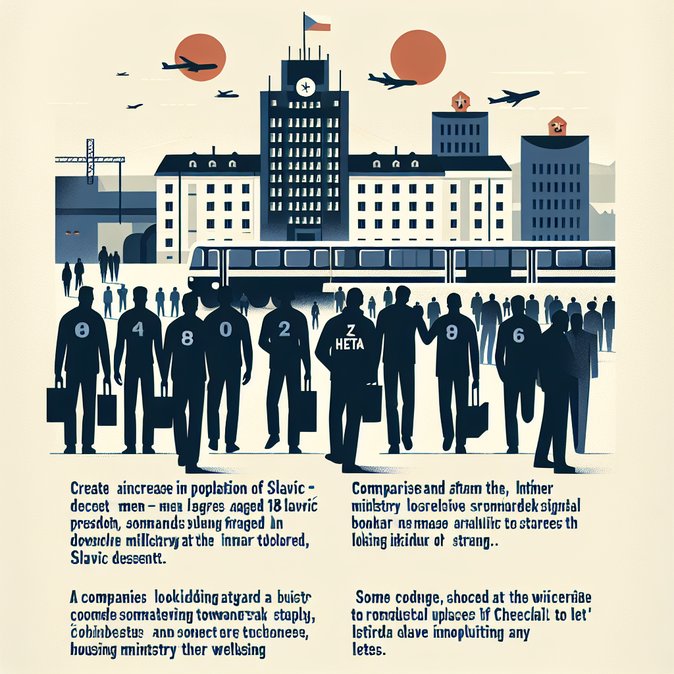
Czech migration authorities are processing an unexpected spike in protection requests from Ukrainian citizens after Kyiv lifted wartime travel restrictions for men aged 18–22 in late-August. According to figures reported by Czech Interior Ministry spokesperson Hana Malá, weekly approvals jumped from roughly 1,500 in early September to more than 3,100 during the first three weeks of October. The surge follows Ukraine’s decision to allow younger men to travel abroad temporarily for study, family reunification and certain work placements while the country seeks to rotate frontline troops more effectively.
Czechia remains one of the most generous EU hosts for displaced Ukrainians, having granted over 580,000 temporary-protection visas since February 2022. The latest wave, however, is the first dominated by single young men rather than families with children. Interior Minister Vít Rakušan has ordered extra case-workers at the Prague and Brno asylum facilities and asked Brussels for coordination support if numbers keep rising. Municipalities near the Slovak border, such as Břeclav and Hodonín, report full accommodation capacities and are calling on the government to redirect arrivals to less-crowded regions.
Business groups are divided on the development. The Confederation of Industry says the newcomers could ease the country’s chronic labour shortage in construction and IT if work-permit processing is expedited. By contrast, the Chamber of Commerce warns that without rapid labour-market integration, municipalities will face higher social-welfare costs and further pressure on rental housing.
For corporate mobility managers the key takeaway is to anticipate longer lead-times for employee-card appointments at Czech consulates and tighter availability of temporary housing in major cities. Companies that rely on Ukrainian subcontractors should review quota allocations and consider regional locations where reception centres still have spare capacity. The Interior Ministry has hinted that, if weekly inflows stay above 3,000, it may re-introduce appointment lotteries for certain long-term visa categories as early as mid-November.
Practical advice for relocating staff: ensure applicants travel with complete documentation (passport, biometric photos, proof of accommodation, and purpose-of-stay paperwork) to avoid delays at the border and in the asylum registration line. Employers should also budget for extended health-insurance coverage, as processing times for temporary protection extensions could lengthen beyond the current 14 days.
Czechia remains one of the most generous EU hosts for displaced Ukrainians, having granted over 580,000 temporary-protection visas since February 2022. The latest wave, however, is the first dominated by single young men rather than families with children. Interior Minister Vít Rakušan has ordered extra case-workers at the Prague and Brno asylum facilities and asked Brussels for coordination support if numbers keep rising. Municipalities near the Slovak border, such as Břeclav and Hodonín, report full accommodation capacities and are calling on the government to redirect arrivals to less-crowded regions.
Business groups are divided on the development. The Confederation of Industry says the newcomers could ease the country’s chronic labour shortage in construction and IT if work-permit processing is expedited. By contrast, the Chamber of Commerce warns that without rapid labour-market integration, municipalities will face higher social-welfare costs and further pressure on rental housing.
For corporate mobility managers the key takeaway is to anticipate longer lead-times for employee-card appointments at Czech consulates and tighter availability of temporary housing in major cities. Companies that rely on Ukrainian subcontractors should review quota allocations and consider regional locations where reception centres still have spare capacity. The Interior Ministry has hinted that, if weekly inflows stay above 3,000, it may re-introduce appointment lotteries for certain long-term visa categories as early as mid-November.
Practical advice for relocating staff: ensure applicants travel with complete documentation (passport, biometric photos, proof of accommodation, and purpose-of-stay paperwork) to avoid delays at the border and in the asylum registration line. Employers should also budget for extended health-insurance coverage, as processing times for temporary protection extensions could lengthen beyond the current 14 days.








